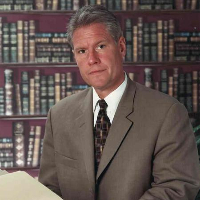Tinley Park Misdemeanor Lawyer, Illinois
Sponsored Law Firm
-
 x
x

Click For More Info:
-
Law Offices of Darryl A. Goldberg
33 N Dearborn St Suite 1830 Chicago, IL 60602» view mapCriminal Defense Law Because Experience Matters
When a trial is in your future, make sure Chicago criminal defense attorney Darryl Goldberg is at your side. Defending your rights is the most important thing right now.
800-901-8970
Eric J Blatti
Criminal, Traffic, DUI-DWI, Misdemeanor, White Collar Crime
Attorney Eric J. Blatti was born in the state of Illinois, specifically the Joliet area. He has since remained a part of the local community. Eric gra... (more)
Philip R. Nathe
Criminal, DUI-DWI, Juvenile Law, Felony, Misdemeanor
DuPage County Criminal Defense Attorney
After starting his career in the criminal courts of DuPage County as a clerk more than 30 years ago, Philip Nathe went on to become an accomplished at... (more)
Juan Ooink
Criminal, DUI-DWI, Misdemeanor, Felony, Traffic
Status: In Good Standing Licensed: 21 Years
FREE CONSULTATION
CONTACTJack Robbin Epstein
Workers' Compensation, Misdemeanor, Felony, Criminal
Status: In Good Standing Licensed: 34 Years
Gene Ognibene
Domestic Violence & Neglect, Juvenile Law, Misdemeanor, Identity Theft
Status: In Good Standing
Rita Haley-Austin
Business, Business Organization, Misdemeanor, Contract, Intellectual Property
Status: In Good Standing Licensed: 14 Years
FREE CONSULTATION
CONTACTAdam Michael Stefancic
Power of Attorney, Federal Appellate Practice, Divorce & Family Law, Misdemeanor
Status: In Good Standing Licensed: 25 Years
Michael Francis McMahon
Criminal, DUI-DWI, Misdemeanor, White Collar Crime, Traffic
Status: In Good Standing Licensed: 31 Years
FREE CONSULTATION
CONTACT Darryl Goldberg Chicago, IL
Darryl Goldberg Chicago, IL Practice AreasExpertise
Practice AreasExpertise



